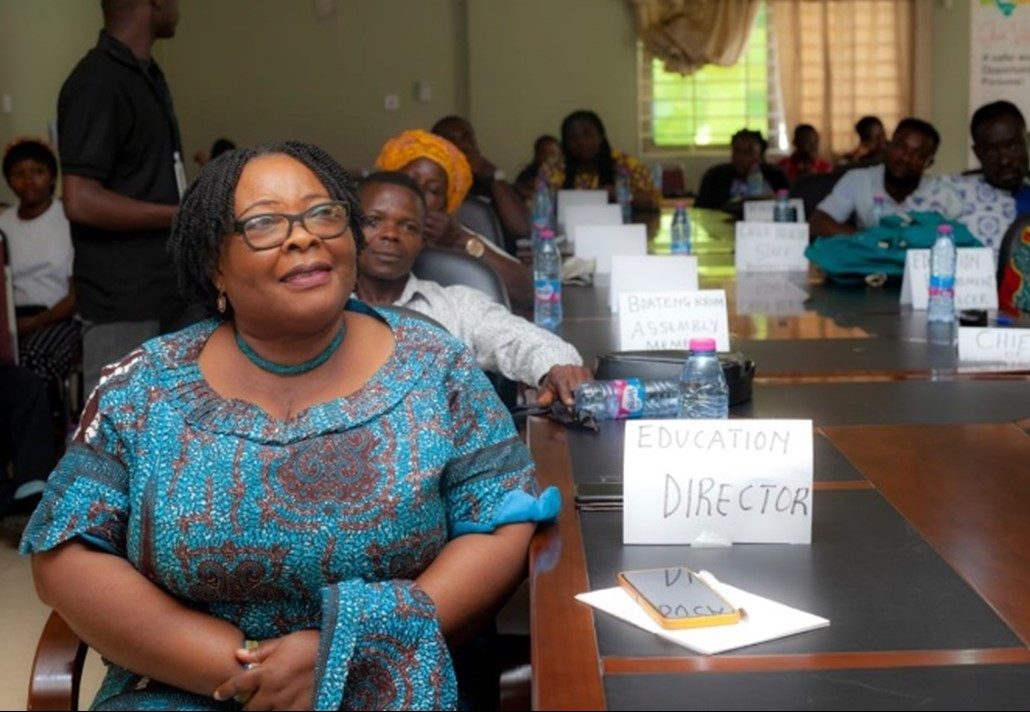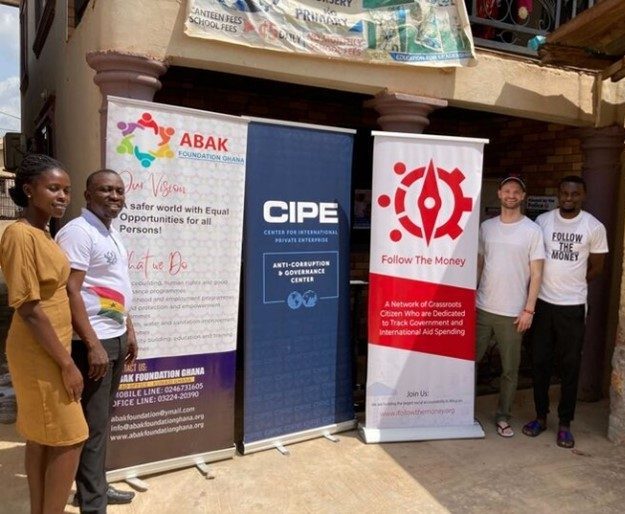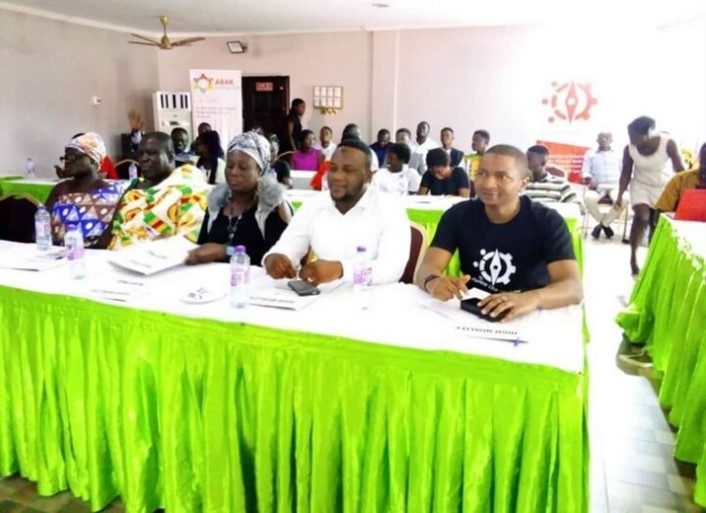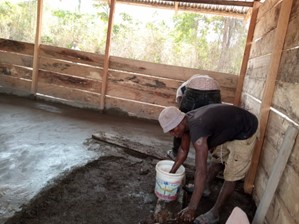CIPE Project Revives Public School Construction in Ghana

In late 2022, a CIPE partner operating in small communities in Ghana traced government money to discover a newly constructed but abandoned school. As the unfinished public project languished, children from the neighborhood were required to walk miles through dangerous areas to get to a functioning classroom. Under CIPE’s and Nigerian partner Connected Development’s guidance, Ghana-based ABAK Foundation launched a 6-month rapid response campaign supported by local media stations to successfully advocate for officials to finish and staff the school. The school is now set to open this summer.
The bottom-up effort, which began by enlisting the help of community leaders and local news outlets and eventually caught the attention of Ghana’s national education ministry, demonstrates the value of the CIPE-led “Follow the Money” approach. Follow the Money, or FTM, is part of a series of rapid response anti-corruption programs designed to strengthen public integrity over short, 6- to 12-month timeframes. CIPE leads these efforts in multiple countries around the world, responding to rising frustration about public corruption with targeted, well-timed interventions that produce swift results.
The story began in early 2022, as CIPE partners at Connected Development (CODE), an African non-governmental organization focused on helping marginalized communities, had just finished “A Citizen’s Guide to Making Public Accountability Work,” a new manual for grassroots accountability that teaches organizations how to apply CODE’s unique FTM approach. The CODE method focuses on using citizen networks to track funds destined for remote and rural areas. It also requires building coalitions of community members and media groups to ensure the money is used to create the greatest possible impact. After hearing about CODE’s work in Nigeria, CIPE’s Anti-Corruption & Governance Center launched a new joint initiative to apply the group’s approach in a new African country and context.
Within months, CIPE had received more than 50 applications for a small mentorship program. In consultation with CODE, CIPE selected the ABAK Foundation Ghana in August 2022. In October, CIPE Program Officer Ben Schmidt joined CODE CEO Hamzat Lawal and Programs Manager Kingsley Agu for in-person training, site visits, and a launch event for ABAK’s Follow the Money campaign in Kumasi, Ghana.


Led by Executive Director Philip Duah, the ABAK team began evaluating projects listed in the budget of the local government assembly budget. From there, ABAK identified two public school construction projects that were years behind schedule.
One of the projects, planned for the community of Boatengkrom, Ghana, was scheduled for completion in 2019, according to government records. However, a site visit in late December 2022 revealed only a partially furnished schoolhouse. The budget plan indicated that the school would house more than 50 students, but the building visited by ABAK and local media representatives contained just a dozen desks—and no electricity, school materials, or teachers. The nearly empty school was needed, though: on a visit to the local community, ABAK learned that over 100 children there were either out of school or had to walk miles through a forested, unpoliced region between villages to attend lessons.



Over the next few days, community leaders and local media released photos and reports of the site on Facebook and local news channels. As word spread, representatives of the local assembly agreed to attend a town hall meeting organized by ABAK on January 22, 2023, and there they announced that new resources would be committed to furnish the school, provide electricity, and hire teachers.

The project even caught the attention of Ghana’s national education minister, Yaw Osei Adutwum, who personally called the municipal education representative to say: “Open the school immediately or else I will come there myself to do so.”
Galvanized by the government’s response, community members volunteered time and locally sourced materials to clear the grounds of bushes and trees, build bathroom facilities, and add three additional wooden classrooms to double the school’s capacity.


In a second town hall meeting in March, a representative from the Education Ministry formally thanked ABAK for calling attention to the delayed school project. After further meetings in April, the Municipal Education Directorate declared that the school’s construction was complete and announced that classes could begin in a few weeks.


In Africa and in other countries around the world, CIPE collaborates with organizations like ABAK and CODE to reduce corruption and eliminate unnecessary delays that harm local communities like Boatengkrom. For more updates on the Anti-Corruption Rapid Response work led by CIPE and partner organizations, please follow our updates here on the Rapid Response blog and on Twitter.
Photo Credits: ABAK Foundation Ghana